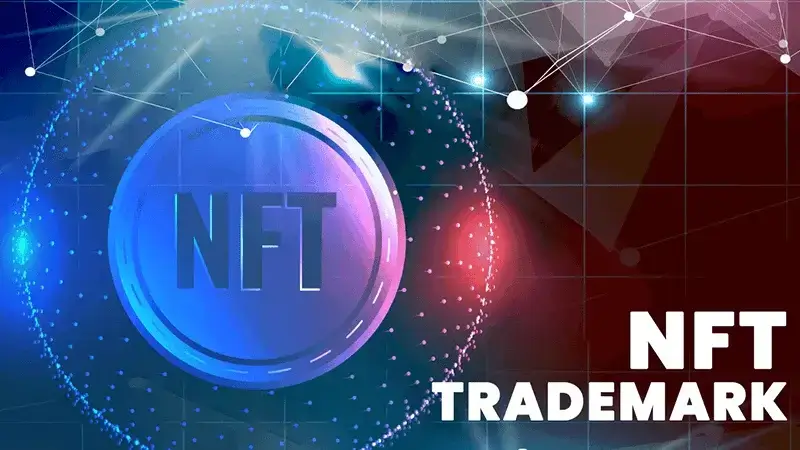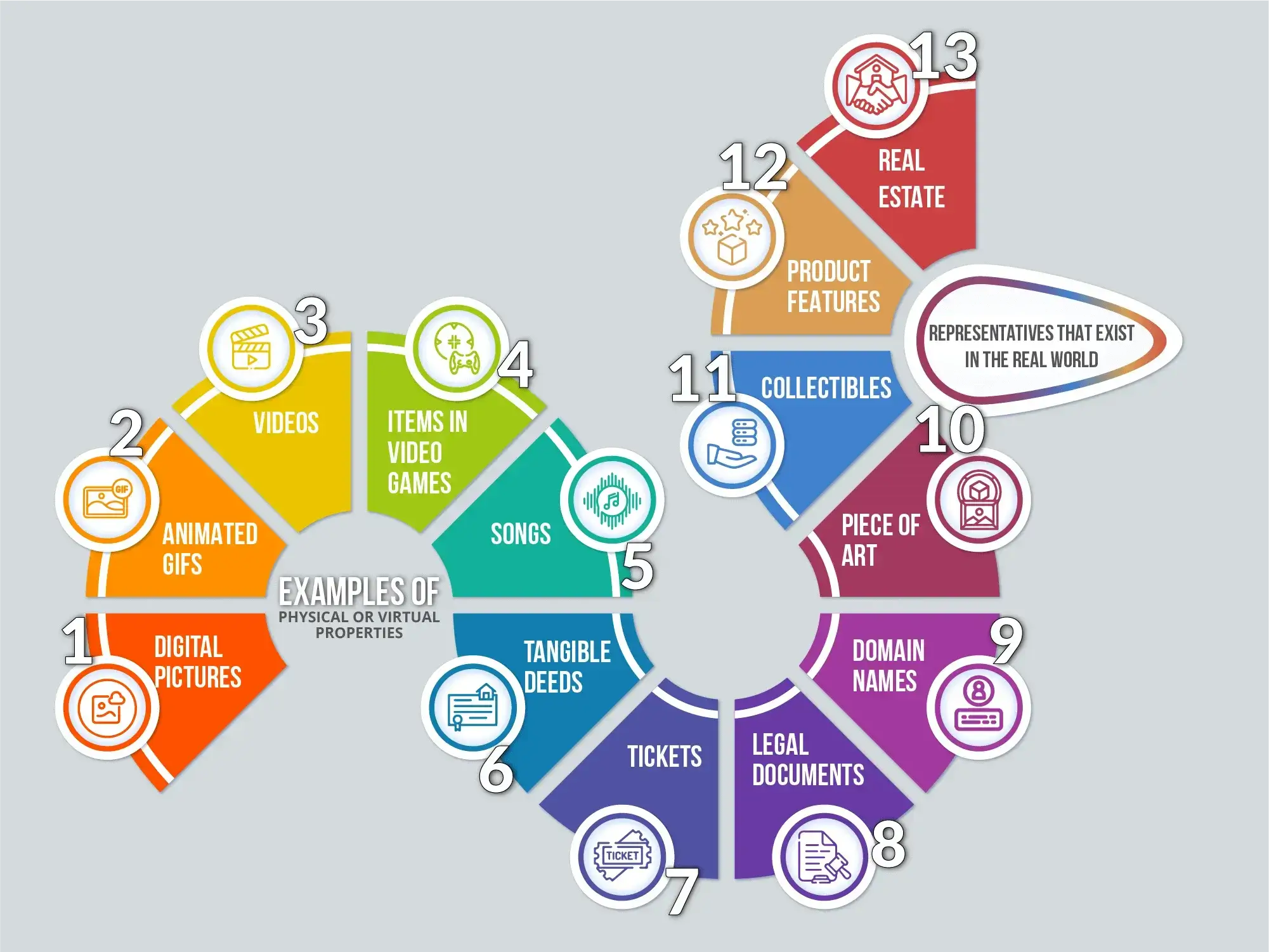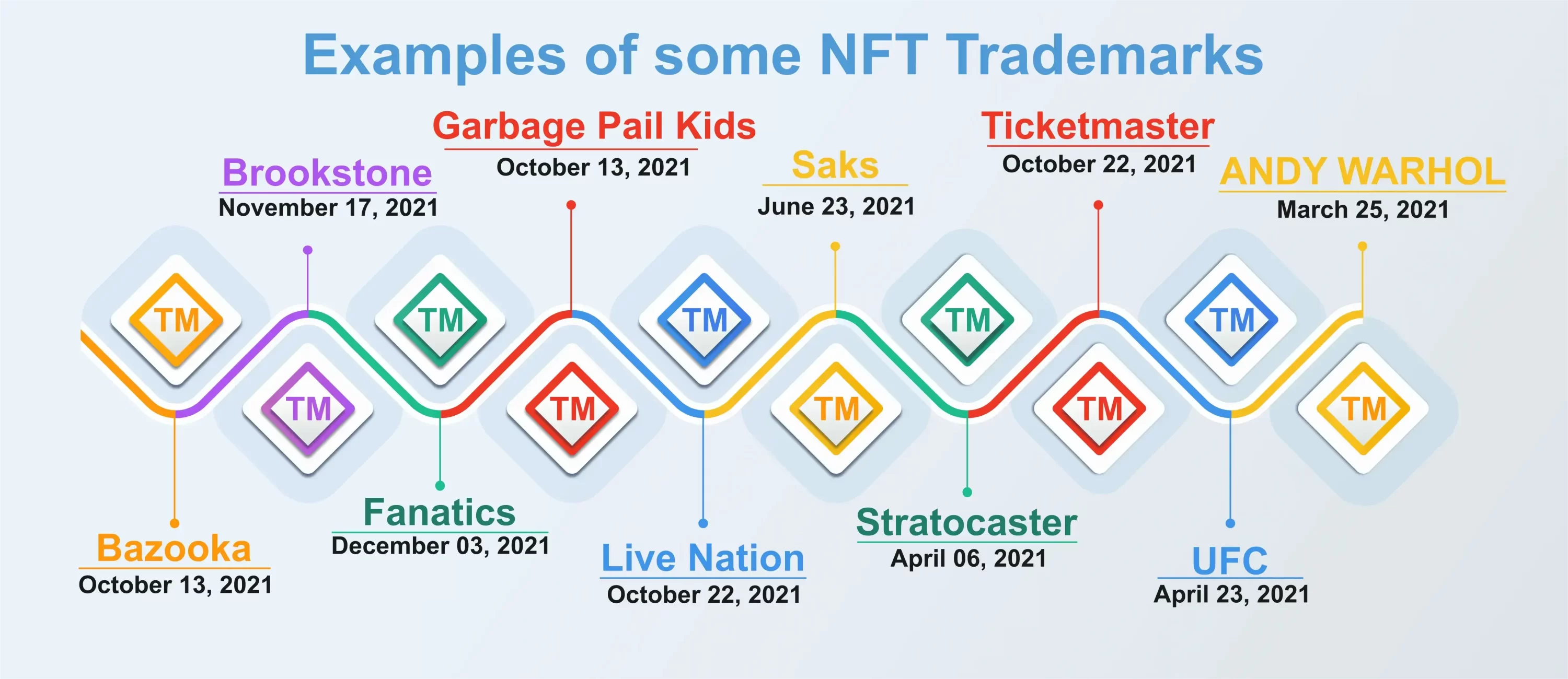
Close


A blockchain-based unique, individual, and not replaceable digital asset that cannot be exchanged is called an NFT (Non-Fungible Token). NFTs cannot be copied because digital ownership of NFTs can be tracked with blockchain technology, which makes NFTs valuable.
NFTs are composed of separate and distinct units, “tokens”, with a unique software code called “smart contract” linking them to the underlying assets. “Smart contract” has the ability to explain the information related to the unique NFT. The intellectual property rights connected to the NFT will also be included in the smart contract.
NFTs have the potential to represent ownership of unique items, which can technically include any physical or virtual property, such as:

A word, symbol, design, or combination of these capable of representing the source of a product, goods and services and distinguishing it from others is called a trademark (names and logos are the NFTs’ most common trademarks). The same concept is also adopted for NFT trademarks, where the trademark represents the source of a digital product, goods and services and differentiates it from others, which is called an NFT trademark.
Trademark law is completely applicable to NFT. Once the trademark office grants the name of a NFT, trademark law provides legal rights to its owner and ensures that no one can use a similar/phonetic or any other similar name/logo that keeps them unique.
It is important to obtain NFT trademark registration to prevent others from using or copying your brand name or logo for similar goods and services of digital assets.
Due to the importance of trademark legal protection, many NFT owners are increasingly registering their NFT trademarks. We can see that only 20 trademark applications were filed for NFTs in 2020, but 2142 trademark applications that included or related to NFTs in 2021 have grown; so far in 2022, 4600 trademark applications include or relate to NFTs.

You can submit your trademark application to trademark your NFT or crypto-property name/logo at the USPTO (United States Patent and Trademark Office) and get approval from the USPTO. This is a similar process to normal trademark registration, which takes up to 12 months to get registered with the US office.
Following are some of the steps to trademark the name of an NFT or crypto-property:
1. Check for the availability of the mark.
2. The next step is filing the application after receiving confirmation that no similar mark exists in the trademark office.
3. The validity is then checked by the trademark officials.
4. Monitor the progress of the mark for any possibility of dispute, and if no error is discovered, then the process moves towards being mentioned in the official gazette.
5. In cases of disputes, an opposition can be filed by the parties within 30 days to oppose the trademark.
6. Once the objections are removed and the disputes are settled, the trademark for NFTs and crypto-property can finally be registered.
Wissen research always include variations such as identical, phonetic similarity, vowel and consonant similarity, and other similarities in the report, as well as using paid and national PTO databases to cover all potential results in the report.
We strongly focus on the goods and services for the search by marking all the combinations to avoid any identical and phonetically similar trademark infringement results.
We offer specialized Internet searches to locate NFT or crypto-property trademark results that are doing business without registering as a trademark. We search the trademark name or design under the goods and services (the goods and services for which most trademark applications are filed for NFT trademarks) mentioned below.
According to WIPO, the category of goods for which these applications have been filed mainly relates to:
Additionally, we use the below-mentioned methodology of internet search to cover the potential results of NFT or crypto-property trademarks.

Authored by – Nitesh Chouhan
Edited by – Guniyal Bagga
Please Subscribe our news letter and get update.
© Copyright 2023 – Wissen Research All Rights Reserved.
Powered by VintageCoders